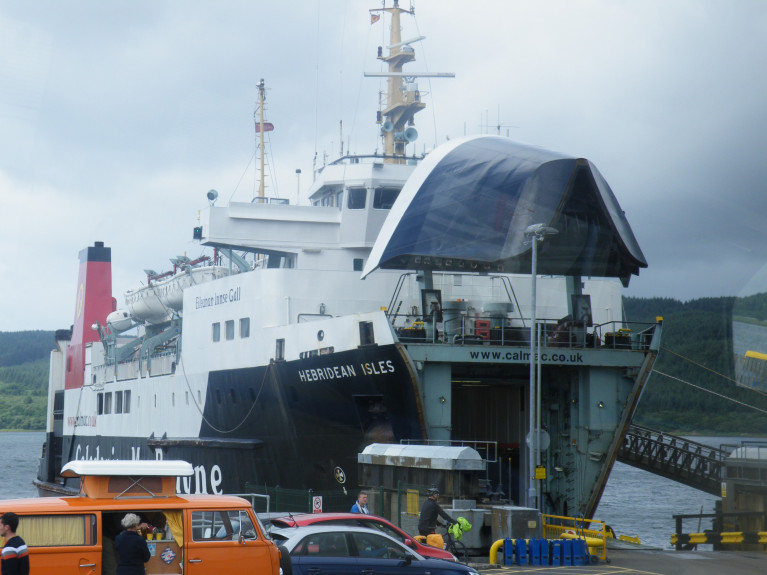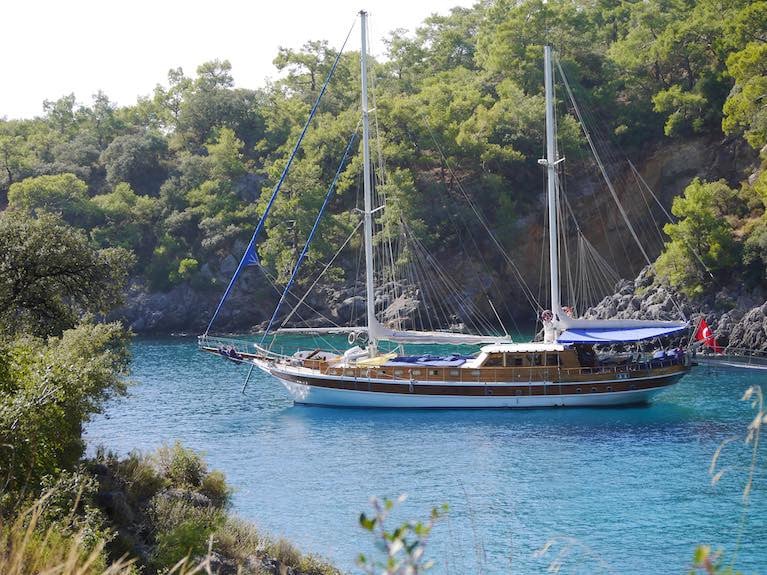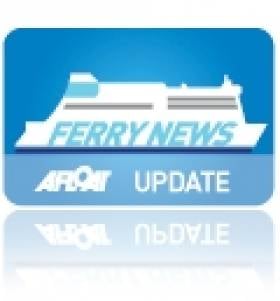Displaying items by tag: Turkey
A shipyard in Turkey has won a £105 million contract to build two new lifeline CalMac ferries for the south-west Scottish island of Islay.
Cemre Marin Endustri has been announced as the preferred bidder for the order against three other yards which will increase vehicle and freight capacity by nearly 40 per cent.
The move was described as an "embarrassment" for the SNP by the Scottish Conservatives.
The first vessel is expected to be delivered by October 2024 and will enter service following sea trials and crew familiarisation. The second vessel will follow in early 2025.
Scottish Government-controlled Caledonian Maritime Assets Limited (CMAL), which owns the nation's ageing ferry fleet, had invited four overseas companies to bid for the contract to build the two vessels - and excluded Inverclyde shipbuilder Ferguson Marine.
The shipbuilder which runs the last remaining shipyard on the lower Clyde was nationalised after it financially collapsed in August 2019, amid soaring costs and delays to the construction of two lifeline island ferries.
The HeraldScotland has more on the story.
Get Married on a Private Crewed Charter Gulet in the Sun in Turkey
2020 was deeply frustrating for those many couples planning to get married as their plans kept being altered by ever-changing COVID regulations. Legions of boat owners also found their racing and cruising plans frustrated.
One local couple managed to resolve both issues concurrently by holding their wedding celebrations on board the family gulet in Turkey in October 2020, creating an event which will live in the memories for all the participants for a long time.
 The happy couple on the stern of gulet ‘Salamander’
The happy couple on the stern of gulet ‘Salamander’
A gulet is a traditional Turkish sailing vessel with voluminous, luxurious accommodation and great stability, hence an ideal holiday for a mix of sailing enthusiasts and those more apprehensive around boats. And contrary to common opinion, gulets do indeed sail when the wind direction and strength are suitable. Typically all the large cabins have their own bathrooms en suite, and there are many relaxing areas both on and below deck, in and out of the sun. Imagine the comfort and service levels of an excellent boutique hotel but with the scenery constantly changing, going where you choose, and loaded with paddleboards, kayaks, sailing dinghies and snorkelling gear.
Juliet Cooke from County Antrim and her boyfriend Alex were in Northern Ireland from their base in Edinburgh to collect a car when they were accidentally but fortuitously locked down in her family's holiday home on Strangford Lough. They arrived in late March, ended up staying for six months, and became engaged there in April.
The initial plans for a sizeable wedding at the holiday home in 2021 were soon abandoned as it became clear that the future for weddings was no less certain than the present, and much smaller weddings were the only alternative to an indefinite postponement.
Juliet's parents suggested using their beloved 26-metre Turkish gulet 'Salamander', which they have run as a successful fully crewed private charter business for some 17 years. Although they usually are fully booked for 26 weeks a year with family groups of up to 12 guests from all over the world celebrating significant birthdays, anniversaries or just enjoying the turquoise waters in the Aegean, there were inevitable unexpected gaps in 2020 season as travel advice kept changing, and several groups of guests had to postpone their voyages on Salamander. A suitable gap for wedding celebrations suddenly emerged!
 Turkish gulet Salamander coming alongside gulet Aganippe in preparation for the wedding ceremony
Turkish gulet Salamander coming alongside gulet Aganippe in preparation for the wedding ceremony
Despite a common misconception, it is not legal for the Captain to marry a couple on board his ship in most countries, so a modified plan was hatched accordingly. Alex and Juliet were able to get married in accordance with the prevailing lockdown regulations in Northern Ireland with a small church wedding for just the two families, followed by an outdoor champagne reception. One week later, the ever-tightening regulations would have prevented this happy event taking place!
 Toasting the arrival of the wedding couple
Toasting the arrival of the wedding couple
Then on to the main event. Three weeks later they held their wedding celebrations in Turkey for over three days. 'Salamander' housed the Cooke family and a 30m gulet, 'Aganippe', which is also offered for private charter by Salamander Voyages, was used by Alex's family and a few friends. 'Salamander' was fully dressed for the wedding in bougainvillaea and greenery. Both gulets were moored tightly alongside each other in a quiet bay for the ceremony, which included vows, readings and even a couple of hymns. The participants were on the aft deck of 'Salamander', and the guests alongside on the aft deck of 'Aganippe'.
 The Bride emerges from the gulet saloon
The Bride emerges from the gulet saloon
After a champagne reception, both boats motored to the delightful small village of Cokertme, where a restaurant had been prepared with the dining table on the beach and dancing on the balcony. The superb food was provided by the two gulet chefs, who occupied the restaurant kitchen for the evening.
 Wedding dinner table dressed for action ashore
Wedding dinner table dressed for action ashore
The guests came from all over the UK and Ireland, Turkey and even Serbia. Inevitably the different nationalities wished to display their prowess at their national dancing after dinner, and even a nearby forest fire did not disturb the celebrations.
 The bridal walkway with both private charter gulets anchored off
The bridal walkway with both private charter gulets anchored off
The happy couple then set off on a smaller gulet for a short honeymoon while the guests slowly meandered back to Bodrum for their flights home. Ryanair's direct flight from Dublin to Bodrum was a real boon for the Northern Irish guests, who then did 14 days of quarantine buoyed up by very special memories. Salamander Voyages' claim of 'probably the safest place in the sun' was indeed well made.
 Waiting for the wedding guests at Orhan’s restaurant in Cokertme
Waiting for the wedding guests at Orhan’s restaurant in Cokertme
The restrictions of lockdown were the inspiration for a truly memorable wedding celebration
Salamander Voyages is happy to assist other couples wishing to get married away from the vagaries of Irish weather in the sun in southern Turkey, as well as their more normal fare of providing private groups of up to 12, with wonderful voyages of discovery in the sun with exquisite food on a highly inclusive basis. They offer a small number of different carefully selected gulets to match groups of different sizes. They even offer one specialist gulet in Turkey which can comfortably accommodate a private party of up to 22 guests. Prices start from around €1200/head excluding flights.
Salamander Voyages also offer gulet charters in Montenegro.
If you want to know more about private gulet holidays in Turkey or Montenegro for up to 22 guests visit the website at www.salamandervoyages.com or please call Tessa on +44 7887 874886
Prior to her arrival on the North Channel, Norcape had been laid-up in Liverpool since February 2010 after the former B+I Line vessel (MV Tipperary) was replaced by European Endeavour on the central corridor route to Dublin. As of this week the ro-pax freight vessel which has been running in a freight-only mode will now carry motorists likewise to her route fleetmates Norbank and Norbay.
With the departure of European Mariner from the Irish Sea, she follows a trio of former Stena Line freight-ferry sisters which were made redundant since the closure of the Belfast-Heysham route late last year. It is believed the sisters Stena Seafarer, Stena Leader and Stena Pioneer have been sold to Russian interests to serve in the Black Sea in connection to the 2014 Winter Olympics in Sochi.
The sisters were renamed, Stena Pioneer became Ant 1, Stena Seafarer is the Ant 2 and Stena Leader is the Anna Marine. They departed Belfast Lough in mid-June to Sevastopol in the Ukraine under the Moldovan flag and with a port of registry in Giurgiulesti.
- Port of Larne
- Belfast Lough
- Stena Line
- Ports and Shipping News
- RoPax
- North Channel
- P&O (Irish Sea)
- B+I Line
- European Endeavour
- Ferry news
- Belfast Lough News
- RosslareFishguard
- LarneTroon
- European Mariner
- Freightferries
- MV Tipperary
- Central Coridoor route
- BelfastFleetwood
- Stena Europe ferry
- 2014 Winter Olympics
- Sochi
- Black Sea
- Turkish shipbreakers
- Izmir
- Turkey
- Winter Olympics 2014
- Irish Sea ferry motorists
































































